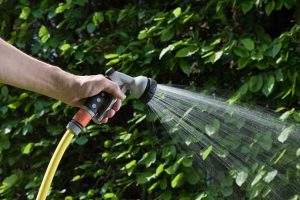Warning as 17m Brits face '£1K fine' for using hosepipe as water firms impose ban | The Sun

BRITS are being warned they could face fines of up to £1,000 for using hosepipes as water firms impose bans.
The changes are expected to affect at least 17million people as the UK faces one of its driest years on record.
Southern Water was the first to announce the measure – citing that river levels were dangerously low following a spike in demand during the record heatwave.
They warned that people could be hit with a hefty fine if found to be using hosepipes to water gardens, wash cars or fill ponds and swimming pools.
Other suppliers, such as Thames Water, South East Water and Walsh Water have also warned they may follow suit as they urged their combined 17million customers to cut back on usage.
An Environment Agency spokesman said: “Southern Water’s announcement of a temporary-use ban for its customers in Hampshire and the Isle of Wight is one of many measures they and other water companies should consider to reduce unnecessary use of water and protect customer supplies and the environment.”
Read more on weather
Map shows balmy 26C heat will sweep Britain today as hosepipe ban introduced
Locals in UK’s driest place have thirst quenched with cold pints thanks to The Sun
The ban is expected to come into force next Friday and will affect 935,000 people in around half a million properties.
Only recently, a government source confirmed the possibility of widescale bans across the country amid the driest recorded July since 1911, according to The Mail.
The last hosepipe ban in 2012 was introduced by seven firms including Southern, Anglian, South East, and Thames Water.
It comes as The Met Office continues to forecast that much of the country will be “drier than average” next month with temperatures higher than usual.
Most read in News
SCHOOLGIRL 'MURDER' Girl, 9, knifed to death in front of sister while playing in the street
UN issues injunction to stop Archie Battersbee's life support being turned off
I had to take Boris' temperature during Covid… his reaction was unbelievable
Video of ‘Russian soldiers castrating Ukrainian POW' sparks outrage
Steve Turner, an expert at the UK Centre for Ecology and Hydrology, said: “There is no suggestion of wetter weather in southern areas of the UK in the near future.
“If that is the case, it is likely that river flows, groundwater levels and reservoir stocks will continue to decline in the south of the country.
“This would increase the short-term pressure on water supply, and prolonged dry conditions would also mean continued impacts on agriculture and freshwater wildlife.”
In 2019, the UK faced its first hosepipe ban in seven years after steaming May temperatures.
And in 2018, a hosepipe ban that affected millions in the north west of England was called off after a deluge of rain at the last minute.
Water supplier United Utilities had planned the ban for seven million households from August 5, 2018.
But a sudden downpour at the end of the month prevented the ban at the eleventh hour.
DROUGHT PERMIT
Last week, The Sun exclusively revealed that Southern Water had led the charge for formal bans after asking the Environment Agency to issue a drought permit.
The firm wants to keep taking water from the River Test in Hants which has seen flows crash from 2,500million litres a day in March to 500million now.
The Consumer Council for Water said water companies were “walking a tightrope” as they try to balance demand with trying to protect the environment.
It said: “With little rainfall on the horizon the pressure on our water supplies is likely to intensify.”
Read More on The Sun
Genius £2 item that saves space in your hand luggage
I wanted to save £1.6K by doing my hair extensions at home… it was a fail
Water UK urged Brits to “carefully consider” their water use after “unprecedented” recent demand.
In a statement, Southern Water said: “While in the process of applying for a drought permit, we urge and remind all customers in Hampshire to reduce water use where possible, to help us protect the impact on the river’s habitat.”
Source: Read Full Article









